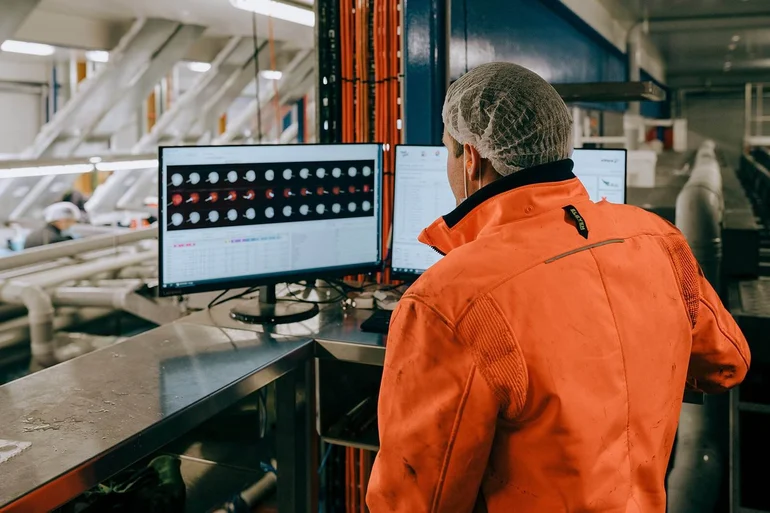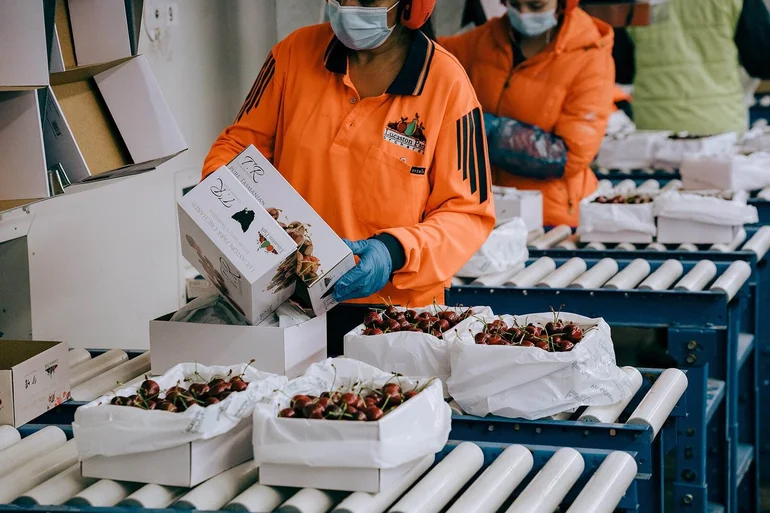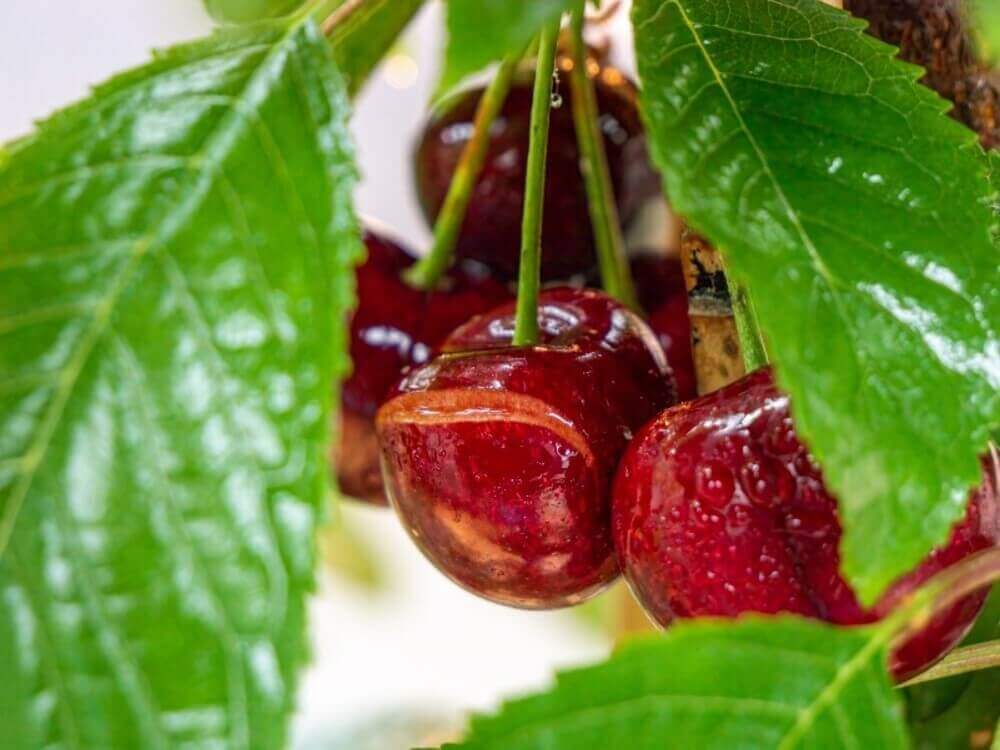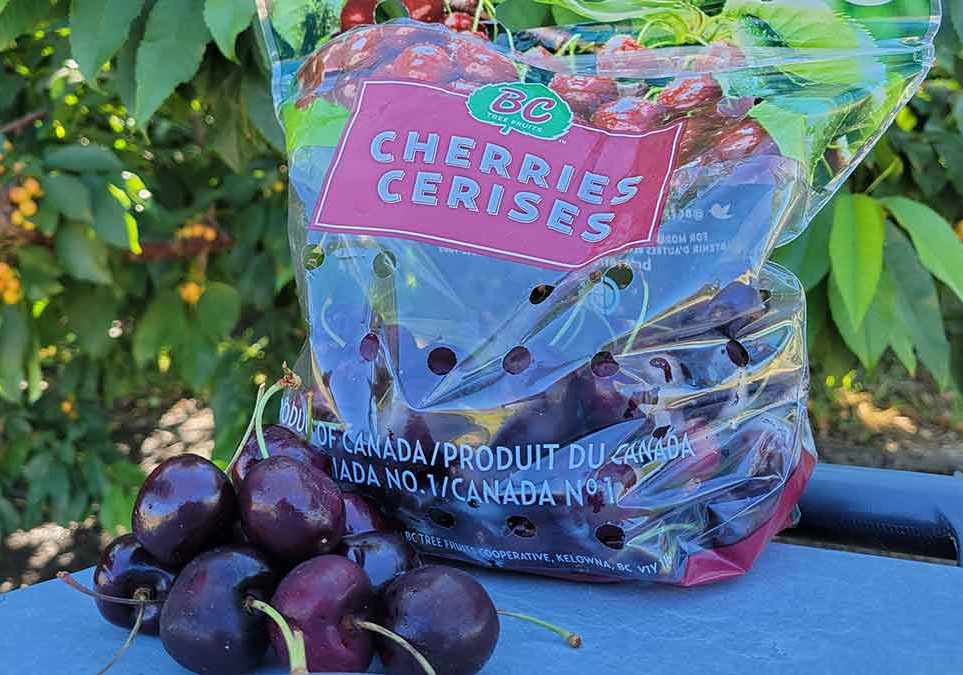The cultivation and packaging of cherries involve a series of challenges:
- The production costs in Australia are high, particularly for labor.
- Sorting and packaging must be fast, efficient, and gentle.
- Operators spend valuable time setting up the system to detect stems and defects.
- Sorting accuracy must improve to avoid false positives and increase yields.
- Some defects, such as fresh cracks, are difficult to detect or quantify.
Each challenge has its solution. Here are some of the improvements achieved by Lucaston Park Orchards:
- Faster and more reliable detection of difficult defects and stems.
- Simplified sorting process, requiring less labor and saving time for operators.
- Increased processing capacity with gentle handling of cherries.
Lucaston Park Orchards is a fourth-generation fruit-growing business run by Andrew and his son Matthew Griggs, located in the heart of the Huon Valley in Tasmania. Specializing in cherries, apples, raspberries, plums, pears, and quinces, the company processes and quickly ships its fresh produce worldwide, focusing on Asian markets.
Originally centered on apple growing, the company shifted to cherries in 1996, seeing them as a higher value product. Despite the challenges of growing cherries and the high agricultural production costs in Australia, the business has thrived by exporting large, high-quality cherries to demanding Asian markets, supporting its continued growth and success.
Focusing on quality and the “try before you buy” experience
Lucaston Park Orchards stands out in the market for its commitment to exceptional quality and personalized customer interaction. By emphasizing the production of the largest and firmest cherries possible, the company offers potential buyers the chance to visit its facilities and orchards, promoting a “try before you buy” experience.
As a family-run business, Lucaston Park Orchards takes a dynamic approach to its operations, which is highly valued by customers, especially in Asia, who appreciate family-owned enterprises.
 Image 1: Cherry AI sorting technology at Lucaston Park Orchards.
Image 1: Cherry AI sorting technology at Lucaston Park Orchards.
Improving quality standards with over 15 years of experience in sorting technology
Lucaston Park Orchards operates primarily in the sale of fresh fruit, with cherries as the main crop and apples as a significant secondary product. Annual production includes about 800 bins of apples and 800 tons of cherries, showcasing the scope and diversity of its agricultural production.
The Griggs family manages approximately 60 hectares of cherry orchards and handles the packaging of another 40 hectares owned by other growers. The packing facility has been working with Ellips optical sorting technology for over 15 years to ensure high standards of quality and productivity for cherries and apples. The sorting process features a 12-lane Elifab CherryClass system, optimizing capacity and managing delicate cherries efficiently.
Business Objectives and Goals
The primary reasons Lucaston Park Orchards has invested in cherry calibration technology revolve around three key areas:
- Reducing labor: The goal is to limit rising labor costs by automating operations and minimizing the need for manual work.
- Increasing capacity: The aim is to expand capabilities to ensure efficient packaging of both the company’s products and those of other growers.
- Improving quality consistency
The objective is to enhance quality standards to ensure consistent quality in every package, thereby maintaining customer satisfaction and competitiveness in the market. While the orchard already maintains high standards, staying at the forefront of technology ensures ongoing excellence in a cost-effective way.
The Potential of Artificial Intelligence to Enhance Quality Standards and Reduce Labor
Currently, Lucaston Park Orchards is satisfied with the volumes achieved by the Elifab cherry sorter. Elifab provides sufficient capacity to sort and package fruits carefully and on time. However, the family-run business recognizes the potential to enhance quality standards and reduce labor needs through the implementation of artificial intelligence (AI).
Lucaston Park Orchards as Early Adopters of AI in Cherry Sorting
The family-run business is constantly seeking innovations and further improvements. As early adopters of Ellips True-AI for cherries, they see the value of gaining insights and advantages as the technology evolves. Matthew Griggs notes immediate positive improvements with AI and foresees numerous possibilities for further optimization.
As with any technology, a cautious optimism and a long-term perspective are the best approach to gaining maximum benefits step by step. Matthew concludes that True-AI has the potential to revolutionize the sorting industry, especially as the AI’s learning capacity and data volume increase with training and experience.
 Image 2: Employees working in Lucaston Park Orchards.
Image 2: Employees working in Lucaston Park Orchards.
What Are Matthew’s Experiences with True-AI's Potential?
- Streamlining the sorting process to require less labor: True-AI simplifies the sorting process. It can reduce human input, saving operators time and making them less reliant on full-time operators, thereby saving valuable labor costs. “Especially in Australia, where labor is the most expensive in the world.”
- Reliable and fast stem detection: “I’ve noticed the operator spent much less time finding stems and the like. True-AI identifies stems very easily. Consequently, we don’t have to chase ghost stems, which I think is a great advantage.”
- More Accurate detection of challenging defects
“True-AI tackles some of the more nuanced and challenging defects. We’ll be able to provide a more consistent overall result compared to traditional vision technology. It’s capable of identifying more complex defects, like holes in cherries that would otherwise be missed.”
“The technology also helps with some defects that are hard to quantify, such as fresh cracks or other very subtle issues. It detects them much more easily than trying to assign a number, so I’d say it’s more accurate this way.”
15 Years of Evolution with the Impact of Optical Sorting
“For the past 15 years, we have relied on Ellips sorting technology to sort cherries and apples. It’s hard to remember how things were before, when we only had mechanical sorters and people inspecting the products. But one thing is clear: the shift to optical sorting has had a tremendous impact on our yields".
The Right Combination of Product, Price, and Service
“Ellips technology has been essential for us to maintain consistent quality. It is also easy to use and allows us to easily create different quality categories suitable for various markets. This flexibility helps us effectively meet diverse demands. Another aspect we appreciate is Ellips' ownership model. We prefer owning our software outright rather than continually paying for licenses.
Additionally, our relationship with the Ellips team, including Roland, Erwin, Mitchel, and Carlos, has been positive. We value their commitment to staying at the forefront of technology, aligning with our business goals. Moreover, having a significant number of Ellips machines in our area positively impacts the service we receive.”
Investing in Capacity and Gentle Machine Handling
“Given our growth and ambitions, we were looking for a new machine with the right production capacity and gentle handling of cherries. Our goal was to sort and package the right volumes quickly, efficiently, and delicately. We had previously used Ellips technology with another machine. Investing in the Elifab cherry grader gave us more confidence because it was paired with Ellips technology.”
The Future
“We are always aiming to grow, which means improving sorting accuracy and processing more cherries through our facility without needing to purchase additional machines. There is still room for improvement to minimize false positives and maximize the value of every cherry.”
Read the full article: Ellips
Images: Ellips
Cherry Times - All rights reserved













